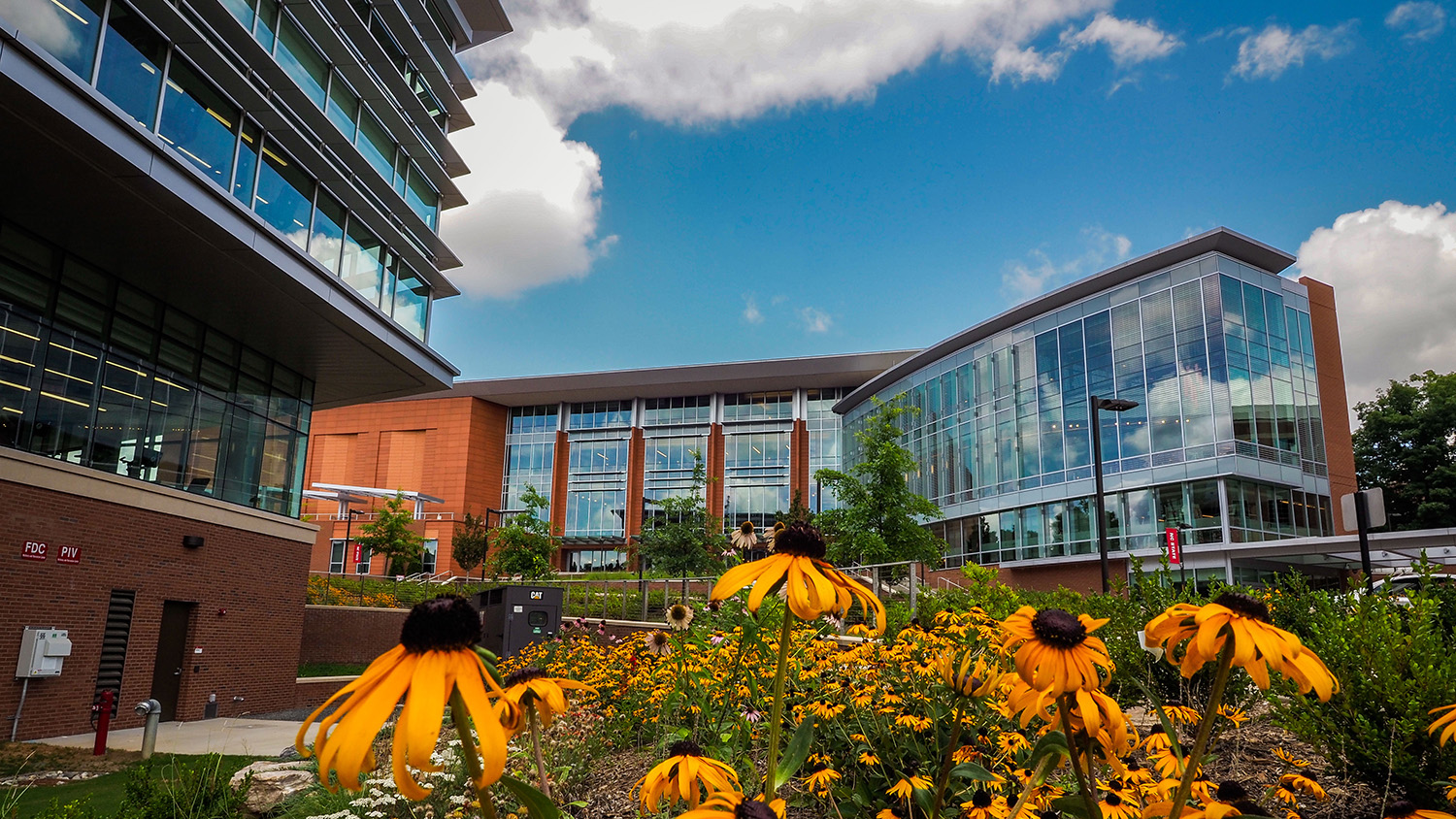What Does the DELTA Reorganization Mean to Me?
Beginning September 1, many NC State University vice provost units and other roles were grouped under two newly designated senior vice provost units. As a result, Dr. Tom Miller was named the senior vice provost for Academic Outreach and Entrepreneurship. Dr. Miller now oversees Continuing Education, DELTA, Engagement and Outreach, and the Entrepreneurship Initiative (EI) and retains his role as vice provost of both DELTA and EI. See the Provost Office organizational chart for a better idea of the new structure.
To allow time for Dr. Miller’s new responsibilities, he made some structural changes within DELTA. Philip Meilleur, DELTA technical writing intern, sat down with Dr. Miller and members of DELTA’s Senior Management Team: Dr. Donna Petherbridge, associate vice provost for Instructional Technology Support and Development Services, Dr. Rebecca Swanson, associate vice provost for Distance and Distributed Education, Kay Zimmerman, associate vice provost for Marketing and Partnership Development and Barbara Yde, business officer. Below are excerpts from their conversation.
Looking at the big picture, what has the reorganization changed about DELTA?
Miller: Fundamentally, nothing has changed except the way that we’re structured. See DELTA’s new organizational structure here. We rebalanced some of the senior management team’s work load. We also reduced my direct reports in DELTA to open time for the new reports I gained from the new senior vice provost role. Operationally, most people should not notice much of a difference within DELTA.
We’ve been working since the very beginning to seamlessly integrate Distance Education and Learning Technologies, which were two separate functions with separate missions prior to the formation of DELTA in 2000. The vision of DELTA was to leverage those two to the benefit of all students, both on-campus and distance students.
We’ve continued to work toward that and, in fact, this reorganization is another step in that direction. Actually, the changes resulting from the DE Task Force will be a big push in taking us toward seamlessness because we will be eliminating the differences in tuition for DE courses and on-campus courses. Because of this, we expect to see even more participation from on-campus students. The visible distinctions are going to go away, even more than they have in the past.
Is Tom Miller still vice provost of DELTA?
Miller: Yes, I just have dual roles. I will continue as vice provost for DELTA in addition to senior vice provost for Academic Outreach and Entrepreneurship. I’m not giving up my old responsibilities but I am reorganizing internally.
Are these other organizations under DELTA now?
Miller: The answer is: no. In my expanded role as senior vice provost, I have picked up responsibilities for the McKimmon Center for Extension and Continuing Education and Engagement and Outreach. Those organizations have their own vice provosts and do not fall under DELTA. They are separate, stand-alone units. They simply report to me to reduce the provost’s direct reports.
Did the recent university budget constraints lead to these changes?
Miller: There is an indirect relationship, but it actually has nothing to do with DELTA. These changes are not a belt-tightening result of budget cuts.
The top-level reorganization within the university moved a number of functions into the provost’s office that were not there previously, so the provost implemented organizational changes at that level to manage the additional responsibilities placed under him. He designated two vice provosts as senior vice provosts, one of whom is me. This precipitated the need to make some organizational changes below me to reduce some of my day-to-day DELTA responsibilities.
I looked at how things could be organized differently in DELTA to free up some of my time for other responsibilities without negatively impacting our services. I’m taking on additional responsibilities, which made it a good opportunity to see how reorganizing things in DELTA could improve our internal operations. I believe these changes will positively impact our services, particularly in the media production and distribution service area (see below), and better serve the growing demand we are seeing for lecture capture.
I’m familiar with Distance Education, but what is Distance and Distributed Education (DDE)?
Swanson: Distributed Education refers to the characteristics of distance education that can also apply to face-to-face and blended courses: flexibility, interactivity and so on. Distributed Education represents our commitment to support faculty’s incorporation of DELTA’s learning technologies into both online and on-campus courses. The DDE group creates synergy between the Distance Education units and video and lecture capture production services.
One change within DDE is a new director of Media Production Services position, which is being created to centrally manage the Media Distribution Services, Video Communication Services, Networking Technology, and Academic Technology Coordination groups within the DDE unit. Having central direction for these groups will facilitate collaboration and strategic planning in their work throughout the university and with outside entities. It is our intent for the DDE media production entities to keep their current titles, missions, structures, and roles.
Miller: Our philosophy is that the technology, services and expertise that we provide for distance courses could greatly benefit those on campus. Part of the objective with the new name is to be a bit provocative. There is an outdated connotation in a lot of people’s minds about what distance education actually is.
The fact is that two-thirds of the students enrolled in distance education courses are on-campus degree-seeking students. That’s a national trend. Students like the flexibility of online courses and aren’t afraid to learn with technology.
How will this reorganization impact faculty who work with DELTA or rely on DELTA-supported learning management systems (LMS), technologies and services?
Petherbridge: DELTA will be offering the same familiar LMSs, technologies, and services that it did before. All the established contacts will remain the same for training and support. Nothing has changed in those areas. We will continue our support of our current technologies and services (e.g. call LearnTech at 919 513-7094 or email learntech@ncsu.edu).
Swanson: If anything, I think faculty experience will be enhanced by the synergy between the DELTA groups that support these services and technologies. Better communication, both internally and externally, will create better teaching and learning environments for faculty and students.
Do you see these organizational changes impacting students in any way?
Miller: Not directly. The biggest impact on students will be the recommendations that the DE Task Force made. The chancellor plans to implement these changes, which will create a major change for the better in the way tuition for DE courses works.
DELTA has both a Business Office and a Marketing and Partnership Development unit. Do these units still exist? What are their responsibilities?
Yde: Yes, both the Business Office and the Marketing and Partnership Development unit still exist. The Business Office oversees personnel, budgetary, and accounting functions. The main responsibility of the business office is to ensure our organization is in compliance with university and state policies and procedures. The university’s distance education budget is managed by the business office. We distribute funding to the colleges for the flexible access program, distance education programs, DE program development, IDEA Grants, and Large Course Redesign.
Our office is an internal service to DELTA. We interact daily with the university-level human resources, accounting, and budget offices, and participate in university-level human resources and business connection meetings to stay abreast of the ever-changing policies and procedures.
Petherbridge: If you don’t have a strong, well-connected Business Office, then you won’t have a strong organization. That’s why this office is part of the senior management team. It’s critical for our organization’s strategic and connective decisions.
Swanson: Their expertise is crucial for efficiency. It’s more cost-effective to follow correct procedures from the start instead of making time-consuming adjustments later. We rely on the Business Office’s extensive knowledge of policies and procedures for the smooth functioning of DELTA.
Zimmerman: Marketing and Partnership Development works across all DELTA units. What I do is identify external relationship opportunities and strategically coordinate internal communications.
I do a lot of connective work. I work not only across DELTA but also with other units on campus to explore opportunities and open doors for partnerships and communication. We want to bring new areas together.
I also work with DE for market research and analysis. We research new trends in Distance Education. Additionally, we look for new opportunities and relationships that will have sustainability in the long-term and provide opportunities for the institution and our university.
Are there any future changes in the works for DELTA?
Petherbridge: My experience is that DELTA means change and I expect that this reorganization will not be the last. We’re going to keep making adjustments to better meet the needs of our customers, whether it is months or years down the line.
I definitely expect to make tweaks within the Instructional Technology Support and Development Services unit. I’ve been very open with my staff in telling them that I expect changes, but I’m still figuring out exactly what they’ll be.
Miller: Because we have budget constraints we have been unable to grow staff proportionally to the demand for services. This means we need to configure our organizational structure to be as efficient as possible. We’re in tight times that will probably be with us for a while.
We’re constantly looking at our efficiency and making sure that we’re structured to provide the best service. We do not want to compromise services to faculty or staff, but we have to be cognizant of the realities of budget and growth limits.
Petherbridge: One of the things I like about DELTA is that we’re willing to try new ideas. We’re willing to tweak and reorganize. I know some people find this uncomfortable, but the willingness to change is an innovative approach that organizations should take to grow.
How does the reorganization change DELTA’s position for the future?
Swanson: As Tom pointed out earlier, the reorganization and the changes recommended by the DE Task Force are the next steps in breaking down what is becoming an increasingly artificial barrier between on-campus courses and DE courses.
Miller: Student success is a core part in the new strategic plan for the university and we have a major role in fostering that success. The importance of our role is increasing and we plan to emphasize student success more as we go forward. I think the new organizational structure will be supportive of that concept.
- Categories:


